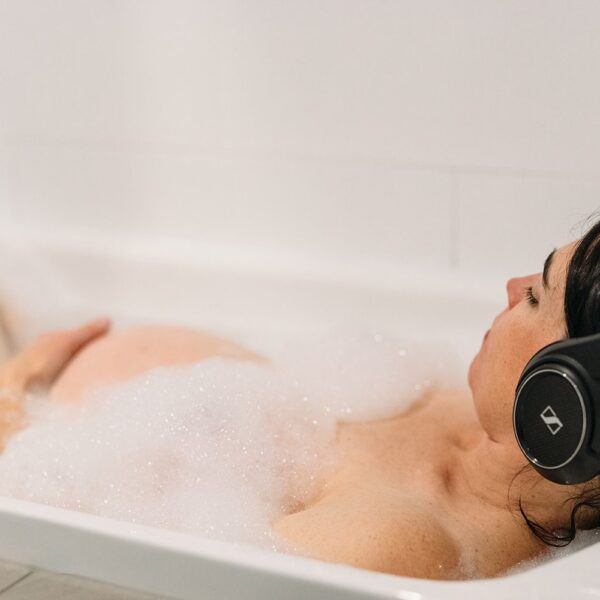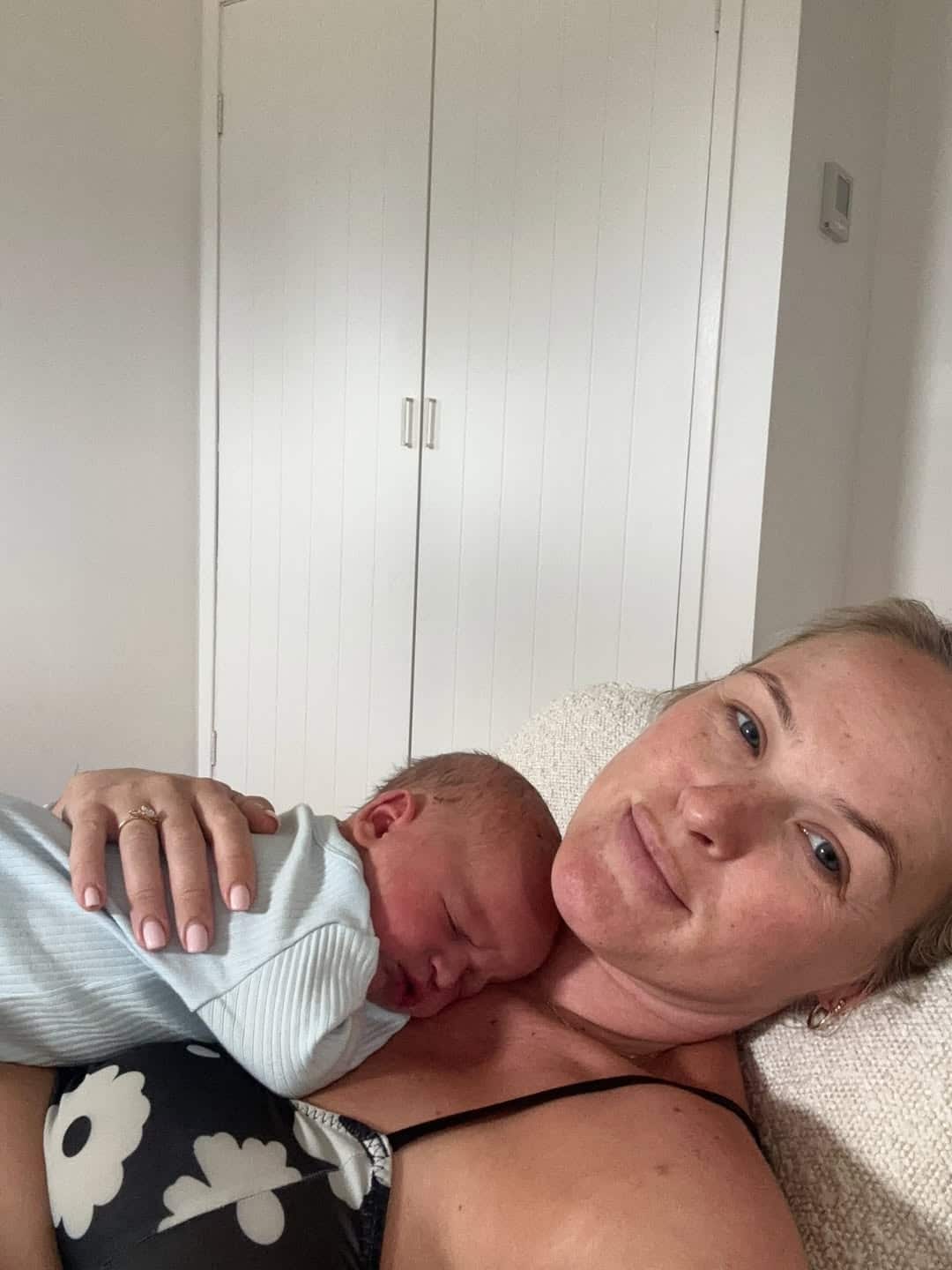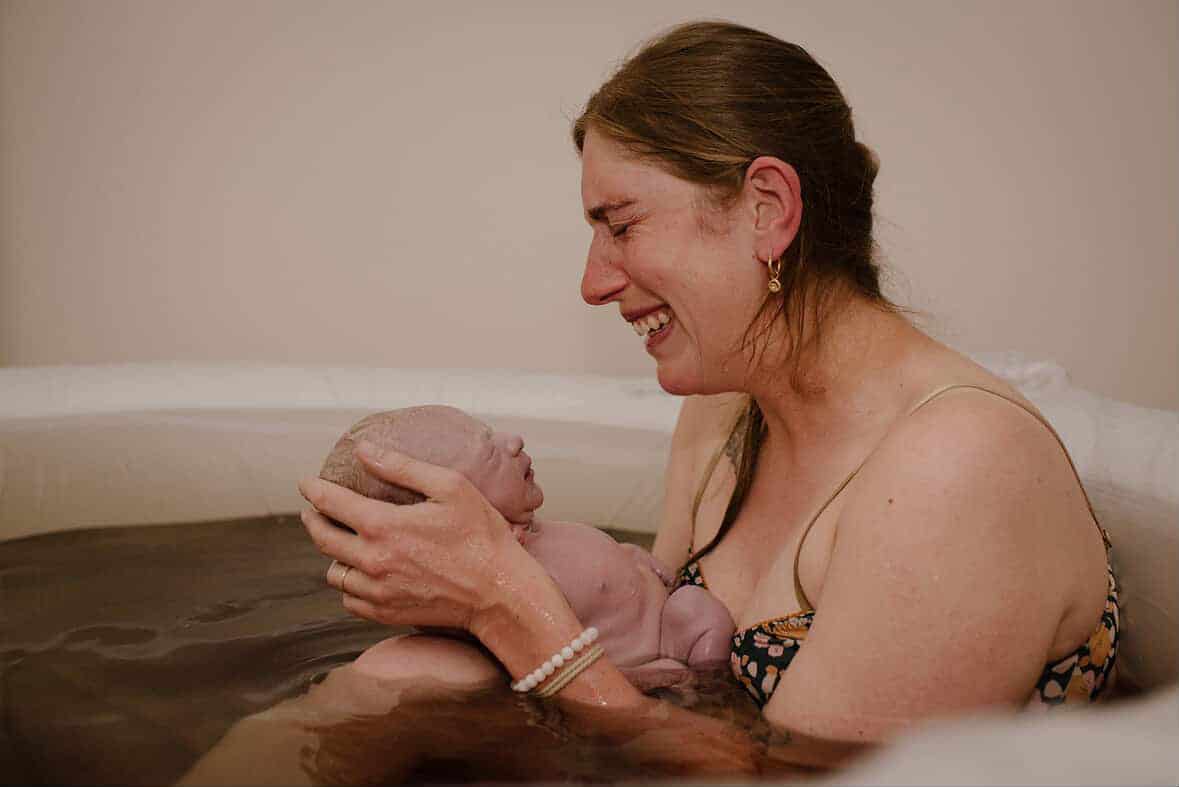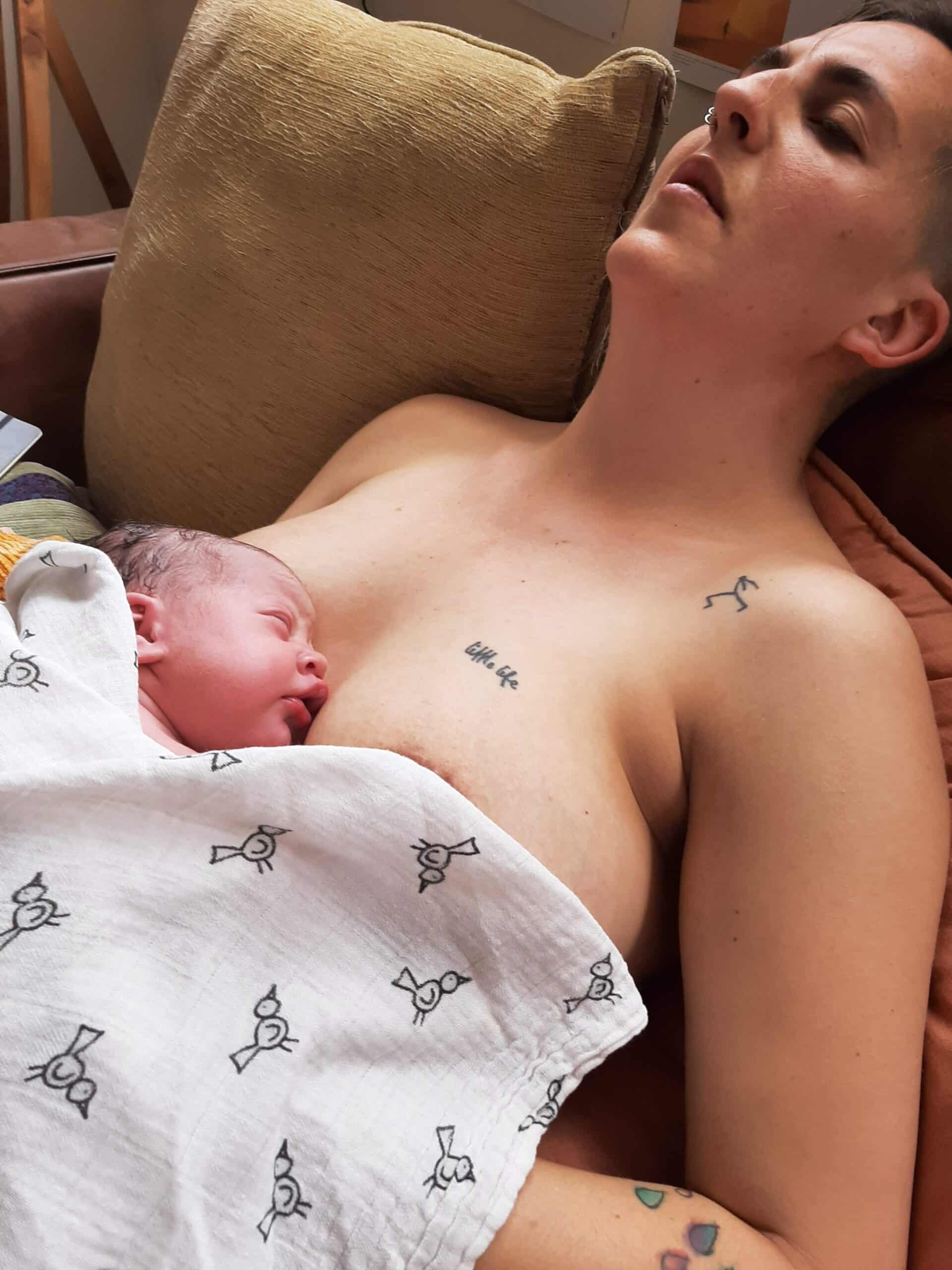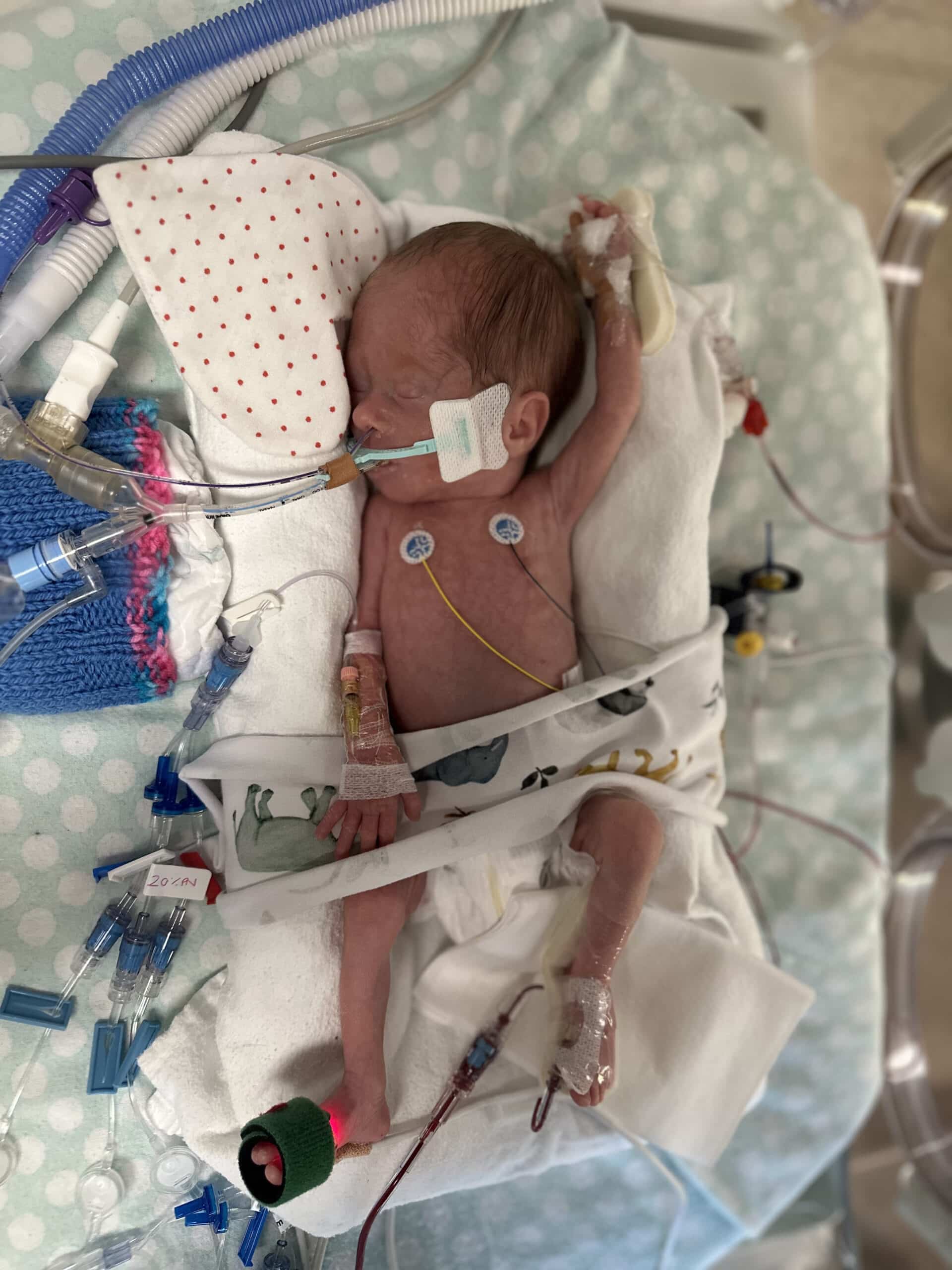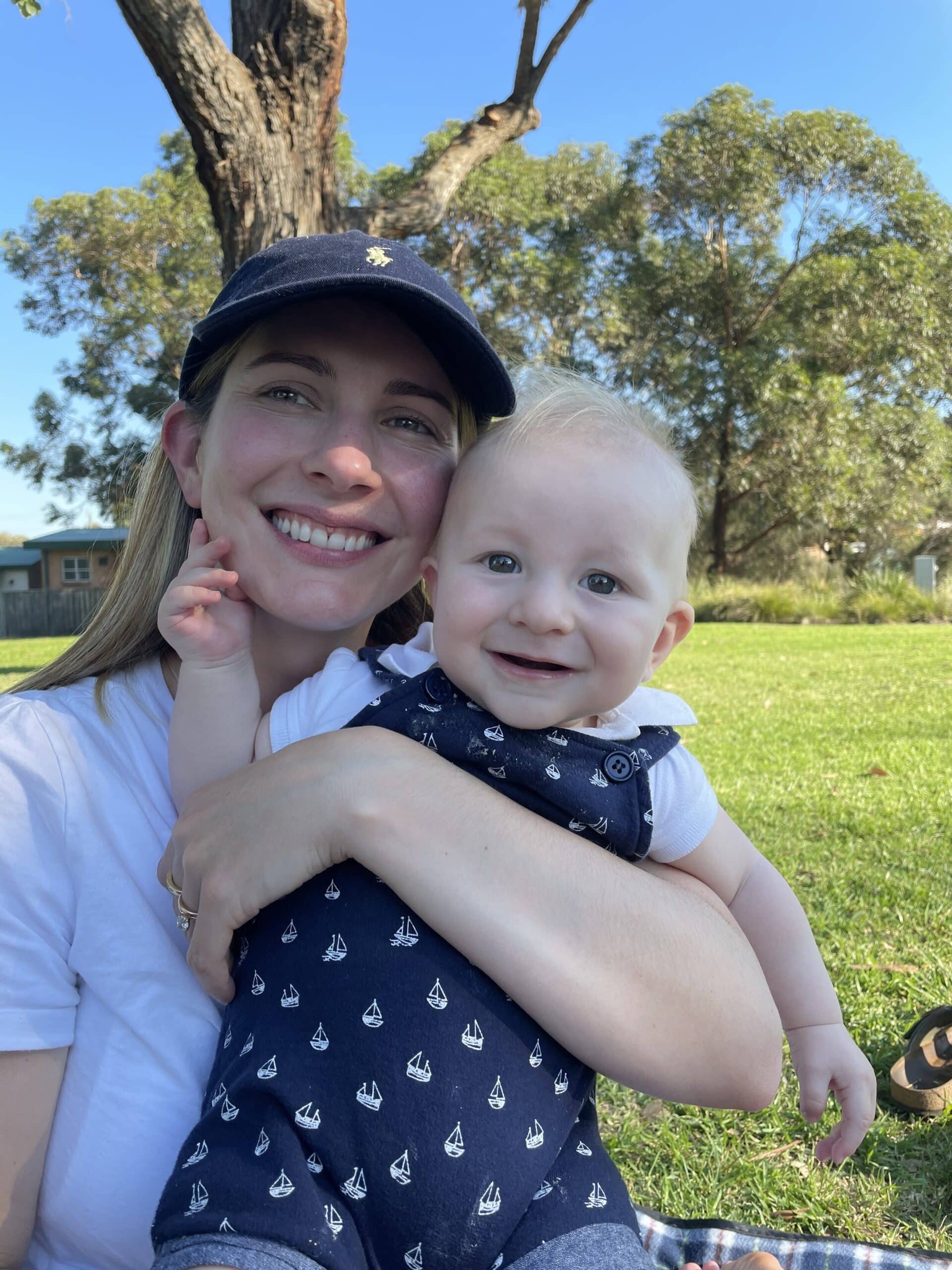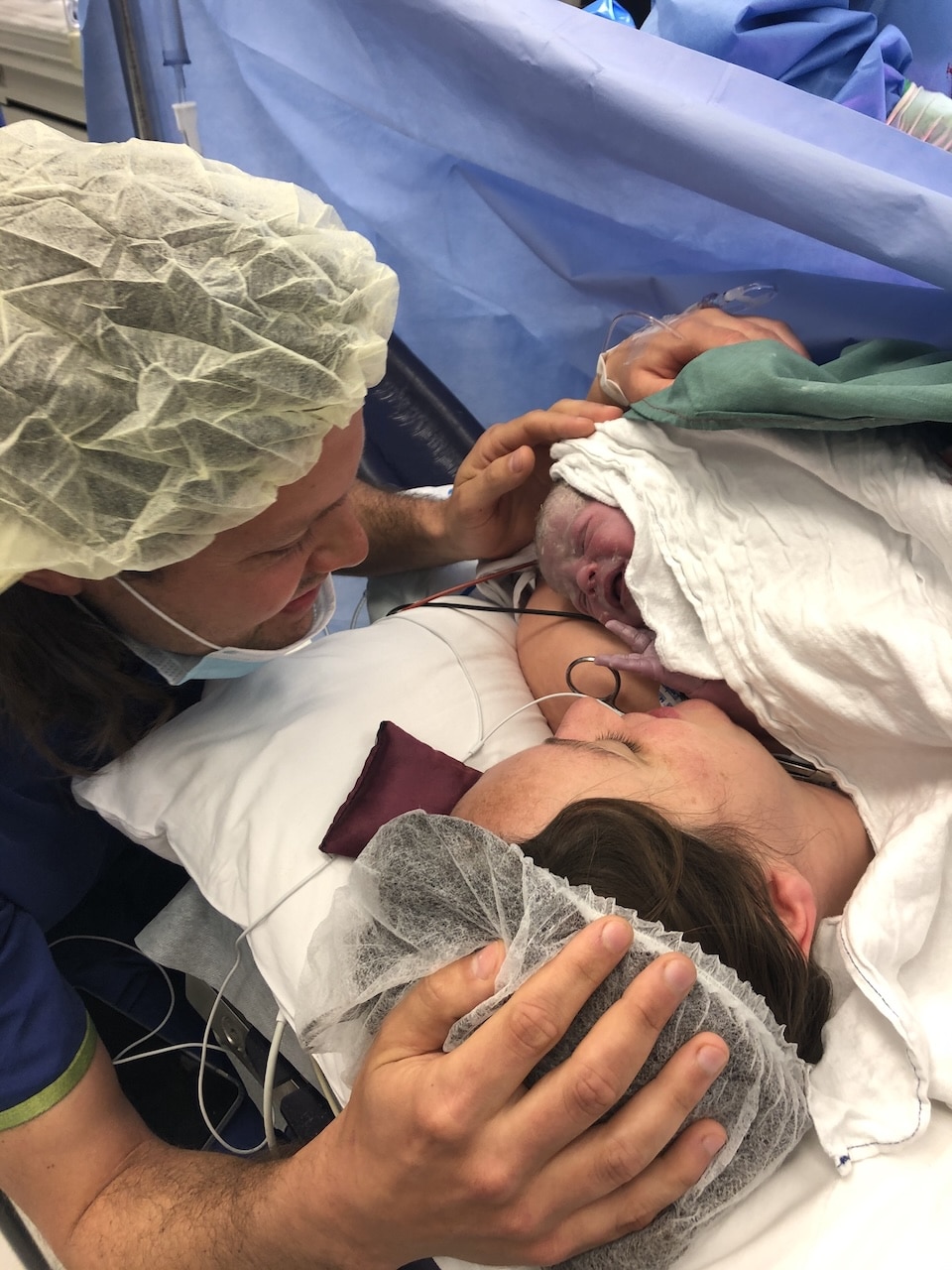Podcasts Franjos
EPISODE 204
Franjos
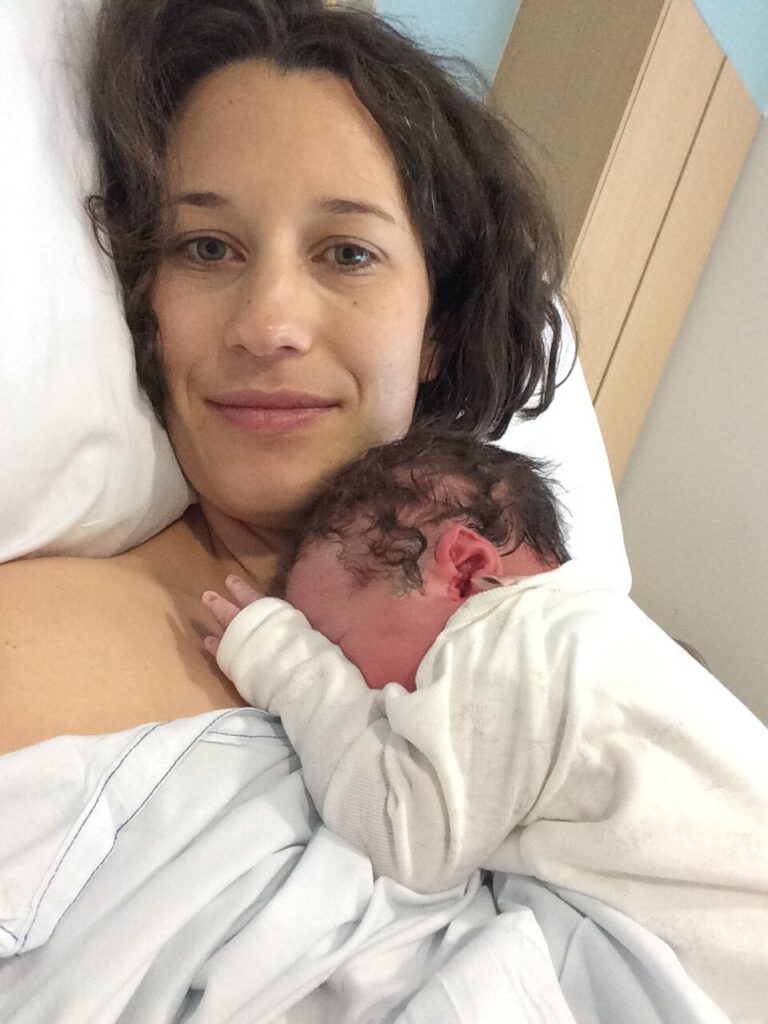
She experienced antenatal depression during the first trimester of her first pregnancy. She was physically and mentally unwell, so much so that she was sobbing in the shower and wishing for the pregnancy to end. However, a week later, as she headed into the second trimester, she felt like a different person.
“When I hit 12 weeks I miraculously felt better. I distinctly remember crying in the shower wanting my pregnancy to end and the next week I woke up feeling wonderful. It was really isolating because I didn’t tell anyone and I was very anxious that once I had the baby I would suffer but I didn’t. I felt high, it was beautiful and I’m sure I’m romanticising that part of my life but I do remember it as being a really beautiful time.”
She was under the care of an obstetrician and planned to birth at Francis Perry Hospital in Melbourne where she attended birth classes. As she edged closer to her due date she tried every natural induction technique to no avail. She was induced with a balloon catheter which prompted regular contractions within 12 hours and once the IV drip was in, she went into intense, active labour and requested an epidural.
“I managed to get a bit of sleep and then it progressed along nicely although at 5pm I was still 2cm and my contractions were coming every minute. And then all of a sudden it was an emergency situation and the baby was showing signs of distress and I was being raced into the operating theatre. I was pretty overwhelmed by that point; I was shaking really aggressively and my blood pressure was all over the show and I wasn’t feeling great or feeling good about the baby. After the cesarean I started hemorrhaging and was completely out of it; I remember they just kept taking sheets of blood away from under me.
Fran was in recovery for over four hours and during that time her husband Hamish was with baby Phoebe, completely unaware of what Fran was going through. As soon as she was wheeled back to her room she took Phoebe out of her swaddle, practised skin to skin and started breastfeeding. Fran makes a point of saying that her time apart from Phoebe in the first few hours didn’t impact their bond or their feeding journey; it was just the beginning of a very beautiful first year.
Phoebe was a few months old when Fran was out walking one afternoon and bumped into Jo, a new mum from the same neighbourhood. Jo mentioned that she was a naturopath and Fran divulged that she had been dealing with low supply issues and had made some breastfeeding cookies (which turned out to be sweet, sugary delights with a few extra oats and some brewers yeast). Three weeks later they started Franjos – naturopath-formulated pregnancy, lactation and kids snacks – which has grown to become a highly regarded staple for new mums.
When Phoebe was 9months, Jo’s husband developed reactive arthritis from salmonella poisoning and so began a worrying and stressful period of their lives. “He ended up with rheumatoid arthritis and was very sick and needed chemotherapy treatment. I was still working as a lawyer, Franjos was going really well and while we were planning on another baby, we couldn’t conceive because of the drugs Hamish was on.”
They made the decision to go off the drugs for a three-month period, clear the residual out of Hamish’s system and attempt to conceive before he started a new wonder drug. It was a complex situation because they literally had a one-week window to conceive and planned to try naturally and to collect sperm in case they needed to use Intrauterine insemination (IUI). Amazingly, Fran was ovulating during their one-week window and they conceived naturally.
“It was a really positive outcome and once Hamish was on the new drug he started to get better so we felt like we were in a really good place. Then at 11weeks I was getting into my car and I just started bleeding; there was so much blood that it was filling my shoes and of course we just presumed that we had lost the baby.”
They went straight to the ED but because it was a weekend, they were refused a scan as the doctors were convinced she had miscarried. Fortunately, Fran’s OB snuck her up to the maternity ward and the ultrasound showed a heartbeat. A few days later she was told that she had an 11x7cm hematoma that was bigger than the baby; the biggest her obstetrician had ever seen. It posed a risk for a few reasons; it could affect the baby’s growth or the placenta and there was a chance it was going to impact the integrity of the sack.
“We were having discussions around that, about all the possibilities and it was really horrible. I was having a big bleed every week and that was always followed by a scan. I was on bed rest for about 12 weeks. I didn’t feel positive at all that I was going to keep her but then at 24weeks it shrank very quickly and basically disappeared and I stopped bleeding. It was a relief but it was around that time that Jo had twins so I took over everything Franjos and continued working right up until the birth and immediately afterward.
“I had planned a cesarean birth for a few reasons. My failure to progress (I hate that term) the first time around definitely contributed but I also knew that I didn’t have the headspace to contemplate a VBAC because the pregnancy had been so fraught the whole time. I wanted a straightforward option.”
The epidural had to be administered twice as Fran could feel the scalpel just before the OB started to operate. She reacted badly; her blood pressure crashed, all the machines started beeping and she was worried that she was going to die. Once stabilised, the OB started the cesarean and baby Margot was born
“She looked just the same as Phoebe and my first thought was: I did all of this for the same thing. I went through all of this just to get the same baby. I didn’t like her, I didn’t connect. And she was a very much wanted baby, after everything we’d been through in the pregnancy it was so strange to be feeling this way. When I breastfed I had this humongous dopamine drop and I felt like I wanted to kill her or myself or throw her away; it only happened during the letdown. It’s called Dysphoric Milk Ejection Reflex (DMER) and it was horrific; I can’t articulate how awful it was.”
Fran muddled through the first year with very little sleep, lots of work and declining mental health. When Margot was 18month old they moved back to NZ to be near family and to have their support; a decision that has served them well over the past four years.
“I think sometimes when your mental health is really bad it’s hard to get help or to know what help you need. When Margot was 3 we
fell pregnant by accident and it was a huge shock. Hamish was very worried about my mental health and yet as soon as I was pregnant I felt amazing; my brain felt really great. And then I had a miscarriage and I went into the biggest, darkest hole of my life. That was when I realised that something happens with my brain with my hormones. I could start to see the history of what had been going on. That also made us realise that we did want another baby but it also made us realise that we needed to figure out my brain. That was when I started my mental health journey; I saw my psychologist for a year and early on she referred me to a psychiatrist who helped me, too.
“I’m not bipolar in the traditional sense but I have a bipolar vulnerability to hormones, I either go up or down in relation to my hormones. I think it’s more common that we realise yet it’s not something that’s talked about. There is medication for it which I have not taken but I have it in my toolbox. I worked so closely with my psychologist to really identify my mood and to help myself deal with the stresses of having children. The answer isn’t rocket science but it’s about prioritising sleep, exercise, healthy eating and meditation and implementing them daily so I stay in a healthy frame of mind.”
Covid hit NZ when she was 34weeks pregnant with Hugo and she admits it was a panic-stricken time. However, the situation had calmed down when she gave birth and she set up her support networks to ensure her mental health was prioritised.
“It’s been such a journey with Hugo because I have that knowledge and the support. I didn’t feel up or down, I just really felt calm and settled. I’ve been completely fine throughout this postpartum period and yet I was ready to handle it if it didn’t go that way. My mental health journey has been an incredibly significant part of my motherhood.”
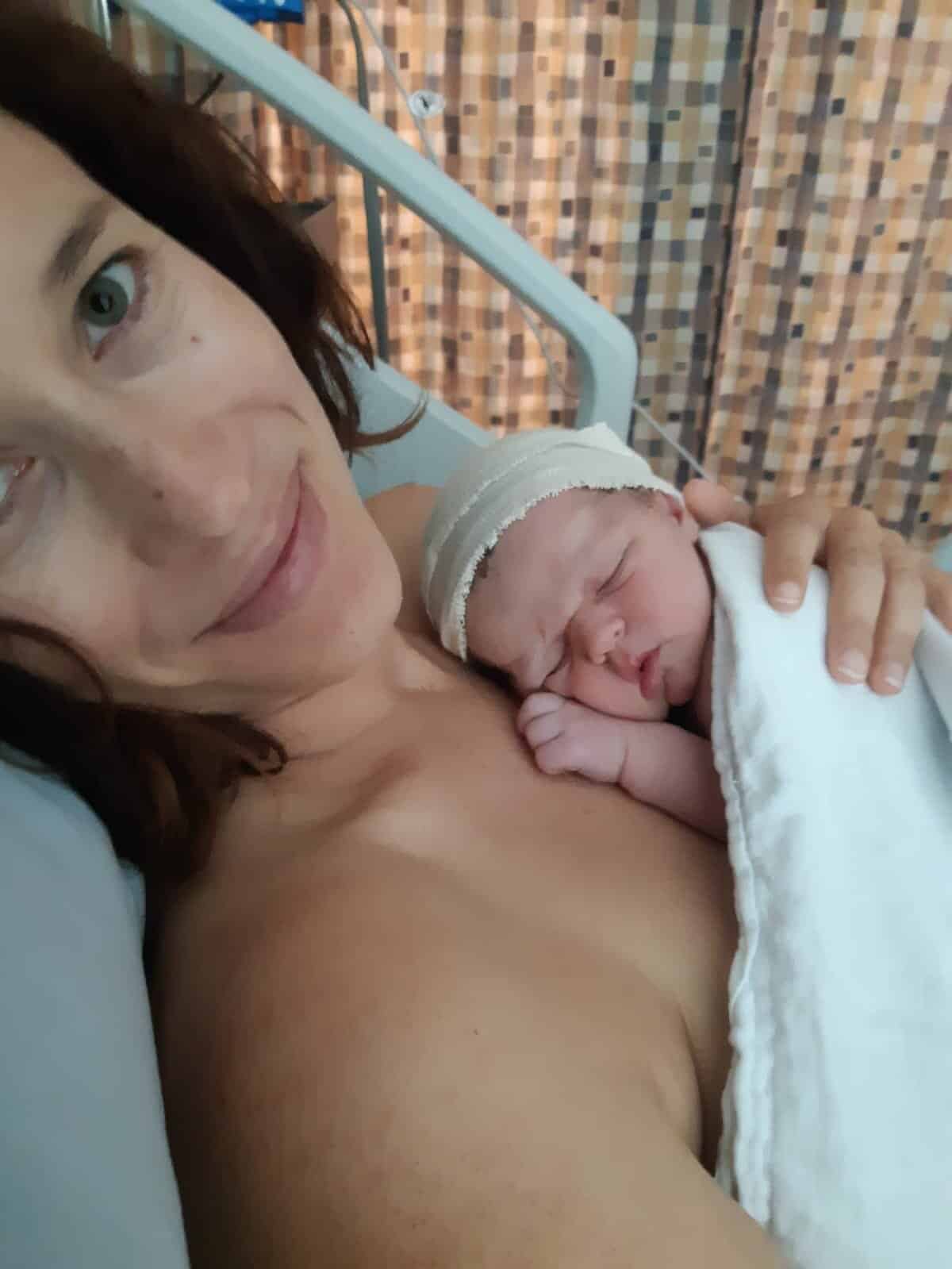
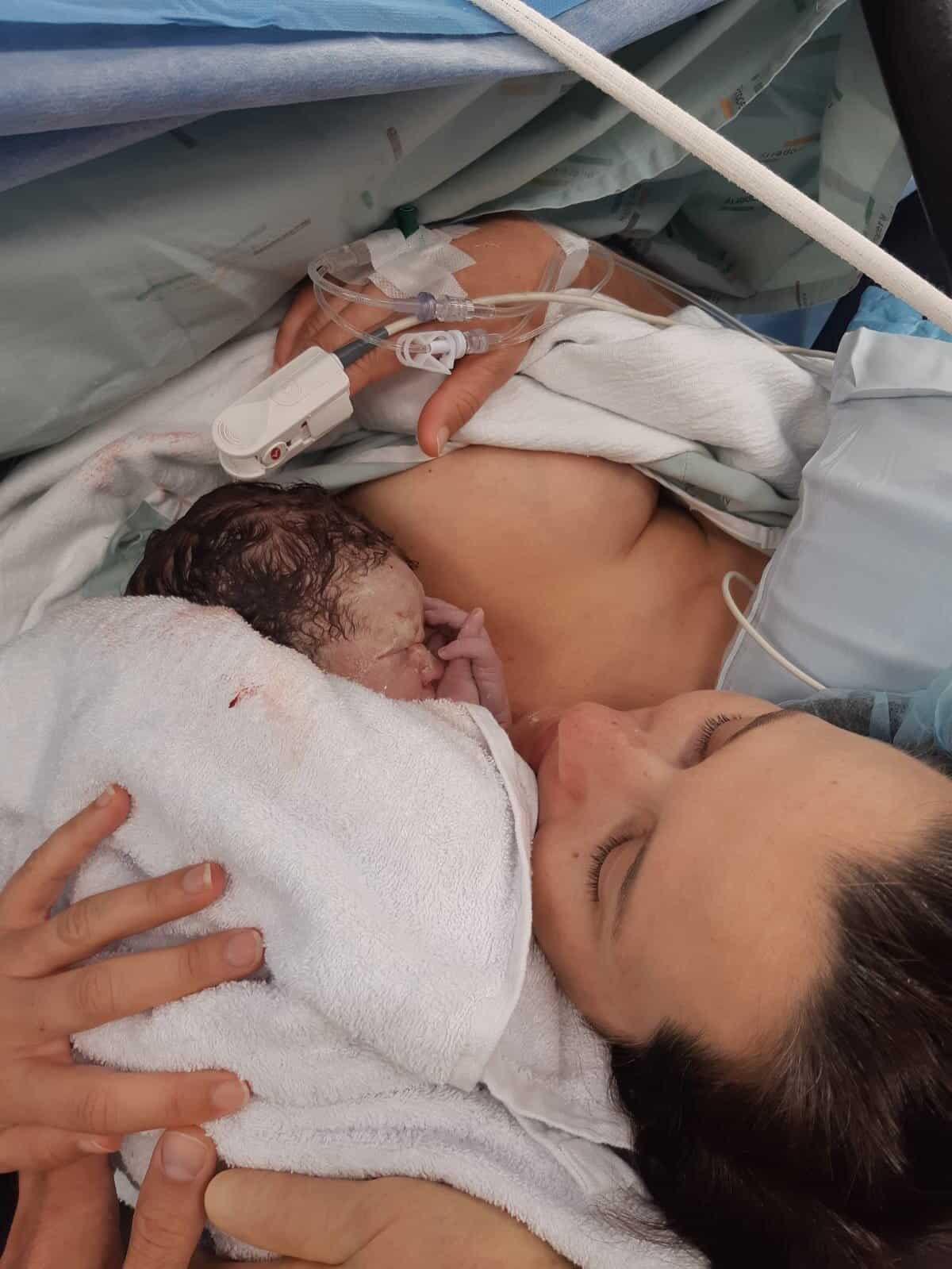
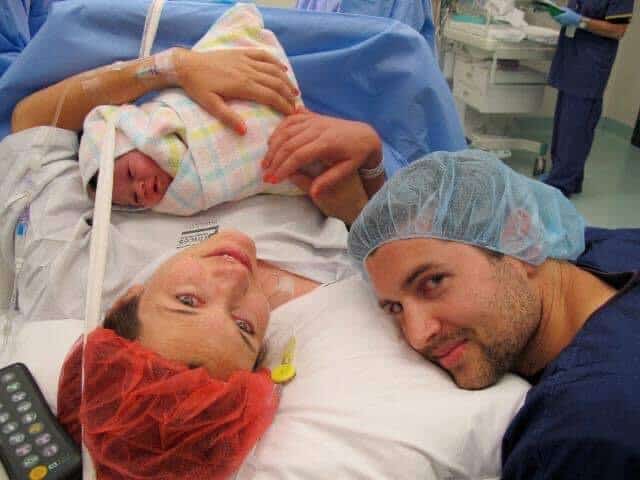
Topics Discussed
Antenatal anxiety, Caesarean birth, DMER, Mental health, PANDA, Postpartum depression (PPD), Postpartum haemorrhage (PPH)
Connect
To find out more about Fran and her range of lactation goodies head to Franjos Kitchen HERE
Episode Sponsor
Today’s episode of the show is brought to you by Mayde Tea. After embracing tea in her own health journey, naturopath Kate Dalton now shares her passion for plant-based healing and natural living through her Mayde Tea collection. Kate truly believes that nature provides us with the best resources for preserving our health. Mayde Tea blends are a delicious salve for mind, body and soul, allowing you to savour nature’s healing power at any time of day. Every tea is created in harmony with your body and the environment, made with herbs harvested in their native location where they thrive best.
I’ve been loving the Mayde Tea nursing tea, a naturopathically formulated blend created to support healthy lactation. A refreshing and warming treat free from caffeine, Nursing settles and nourishes the digestive system of both mother and baby with lemongrass, fennel and fenugreek. The nursing blend has been designed to consume postpartum, rather than during pregnancy. Mayde Tea nursing blend ran out a month or so ago so I bought a bulk pack to ensure I had plenty on hand. Kate and her team are offering my listeners 15% off all tea and accessories with the code ABS15.
Today’s episode is also brought to you by Warren Hill. Warren Hill make French linen play mats in neutral tones that look beautiful in your home. Made from French flax linen with luxurious padding, they’re stone washed to give them a worn, comfy feel from the first time your little one uses it. Linen is naturally hypoallergenic, extremely durable, and one of the most sustainable materials to harvest and produce in the textile industry. Their play mats are high quality, crafted to last, and come packaged in a linen dust bag and posted in compostable post bags, so there is zero waste delivered to your door. Each play mat comes in a linen dust bag and is machine washable for (very!) easy care. When you buy a play mat from My Warren Hill, you’re also planting Ten Trees. They have just released their new new square, luxuriously sized Warren Hill baby play mat. It’s Natural colour on one side and Chestnut colour on the other. See their full range over at https://mywarrenhill.com
Categories
Related Products
-
Birth Meditations
$49.00Narrated by Sophie Walker, these soothing and informative meditations help you feel supported and confident around birth.
Join the conversation
Sign up to get the latest updates, freebies, podcast releases straight into your inbox
@AustralianBirthStories
Follow along with us
@AustralianBirthStories
Follow along with us
@AustralianBirthStories
Follow along with us
@AustralianBirthStories
Follow along with us
@AustralianBirthStories
Follow along with us
@AustralianBirthStories
Follow along with us
@AustralianBirthStories
Follow along with us
@AustralianBirthStories
Follow along with us
@AustralianBirthStories
Follow along with us
@AustralianBirthStories
Follow along with us
@AustralianBirthStories
Follow along with us
@AustralianBirthStories
Follow along with us
